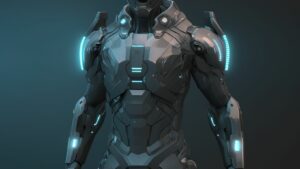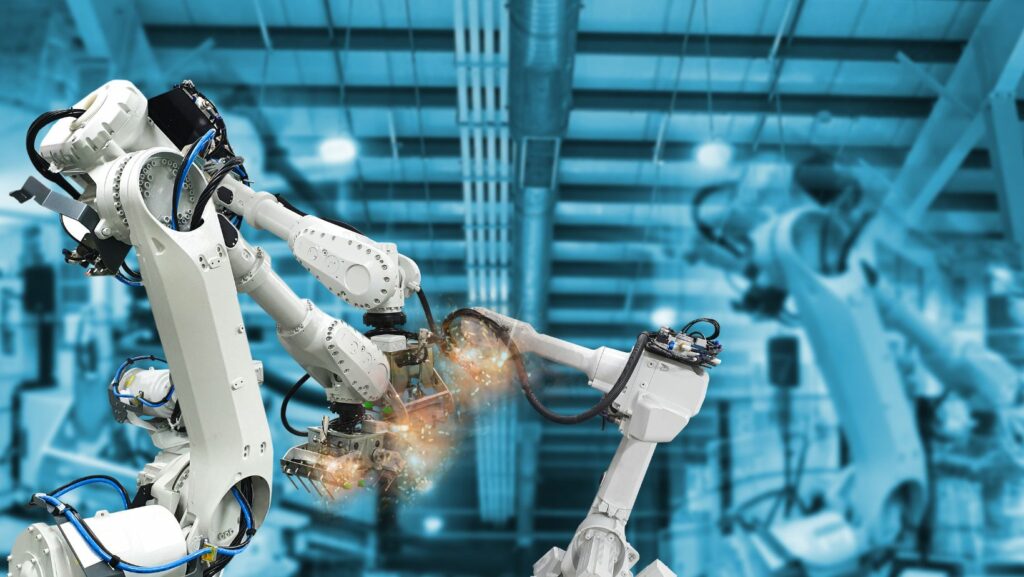Exosuit Technologies has just secured a $2.9 million contract, marking a significant milestone in the wearable robotics industry. This deal not only highlights the company’s innovative approach but also underscores the growing demand for advanced exoskeleton solutions across various sectors.
Exosuit Technology
 Exosuit technology represents a significant leap in wearable robotics, enhancing worker safety and efficiency. These devices integrate advanced robotics with human motion.
Exosuit technology represents a significant leap in wearable robotics, enhancing worker safety and efficiency. These devices integrate advanced robotics with human motion.
An exosuit is a wearable device designed to augment human movement. Unlike rigid exoskeletons, exosuits typically use softer materials and flexible structures. They offer support and increased strength for tasks that involve repetitive motion or heavy lifting. Exosuits leverage sensors, actuators, and control algorithms to assist wearers’ movements seamlessly.
Applications of Exosuits
Exosuits find use in various industries, each with unique needs:
- Industrial Sector: Exosuits assist workers in manufacturing and construction by reducing fatigue and preventing injuries (e.g., back strain from lifting heavy objects).
- Healthcare: They aid medical professionals during long surgeries by providing physical support. Patients undergoing physical rehabilitation also benefit by gaining mobility support and strength.
- Military: Exosuits enhance soldiers’ capability by decreasing fatigue and increasing load-carrying capacity. They also improve maneuverability and endurance in demanding environments.
- Agriculture: Farmers use exosuits for tasks such as harvesting, pruning, and planting, reducing the strain of repetitive actions and increasing productivity.
- Logistics: Workers in warehouses use exosuits to lift and move goods more effectively, improving efficiency and reducing injury rates.
Each of these applications showcases the versatility and transformative potential of exosuits in modern labor practices.
Details of the $2.9 Million Contract
 Exosuit Technologies’ recent $2.9 million contract underscores a pivotal development in wearable robotics. This contract accelerates their mission to enhance worker safety and efficiency with advanced exosuit technology.
Exosuit Technologies’ recent $2.9 million contract underscores a pivotal development in wearable robotics. This contract accelerates their mission to enhance worker safety and efficiency with advanced exosuit technology.
The $2.9 million contract was awarded by the Department of Defense (DoD). This decision reflects the
DoD’s commitment to investing in innovative technologies that bolster operational capabilities. By supporting Exosuit Technologies, the DoD aims to integrate cutting-edge wearable robotics into various military applications, enhancing the effectiveness and safety of its personnel.
The primary purpose of the contract involves developing advanced exosuits for military use. These exosuits will provide soldiers with augmented strength and endurance, particularly in physically demanding tasks. By leveraging sensors, actuators, and control algorithms, the exosuits intend to reduce injury rates and increase operational efficiency. The contract also includes rigorous testing and evaluation phases to ensure the technology meets stringent performance standards.
Impact of the Contract on the Industry
The $2.9 million contract for Exosuit Technologies marks a significant milestone in the wearable robotics sector. This deal propels exosuit technology into a new era of development and application, demonstrating its potential to transform various industries beyond the military.
Advancements in Wearable Robotics
The contract accelerates advancements in exosuit design and functionality. Enhanced sensors, improved actuators, and sophisticated control algorithms improve the overall performance of wearable robotics. These innovations boost user safety and operational efficiency across different sectors, such as construction, healthcare, and manufacturing.
Increased Market Adoption
 With the DoD’s endorsement, other sectors may follow suit in adopting exosuit technology. Industries grappling with physically demanding tasks—like shipping, automotive, and heavy machinery—could find these wearable solutions beneficial for reducing worker injuries and increasing productivity. In healthcare, exosuits may assist in rehabilitation and mobility for patients with physical impairments.
With the DoD’s endorsement, other sectors may follow suit in adopting exosuit technology. Industries grappling with physically demanding tasks—like shipping, automotive, and heavy machinery—could find these wearable solutions beneficial for reducing worker injuries and increasing productivity. In healthcare, exosuits may assist in rehabilitation and mobility for patients with physical impairments.
The contract stimulates economic growth by fostering innovation. Companies specializing in robotics and wearable technology gain opportunities for collaboration and development. This creates jobs and drives investments in research and development, pushing the industry forward.
Strategic Partnerships
The contract encourages strategic partnerships between private companies and government bodies. As Exosuit Technologies collaborates with the DoD, it sets a precedent for similar future collaborations. These partnerships contribute to the rapid evolution of exosuit technology and its diverse applications.
Regulatory Evolution
As exosuits become more prevalent, regulatory frameworks will need to evolve. Standards for safety and performance, established by government and industry bodies, will ensure the reliable integration of these advanced systems. This contract could prompt the development of such standards, benefiting the entire industry.


